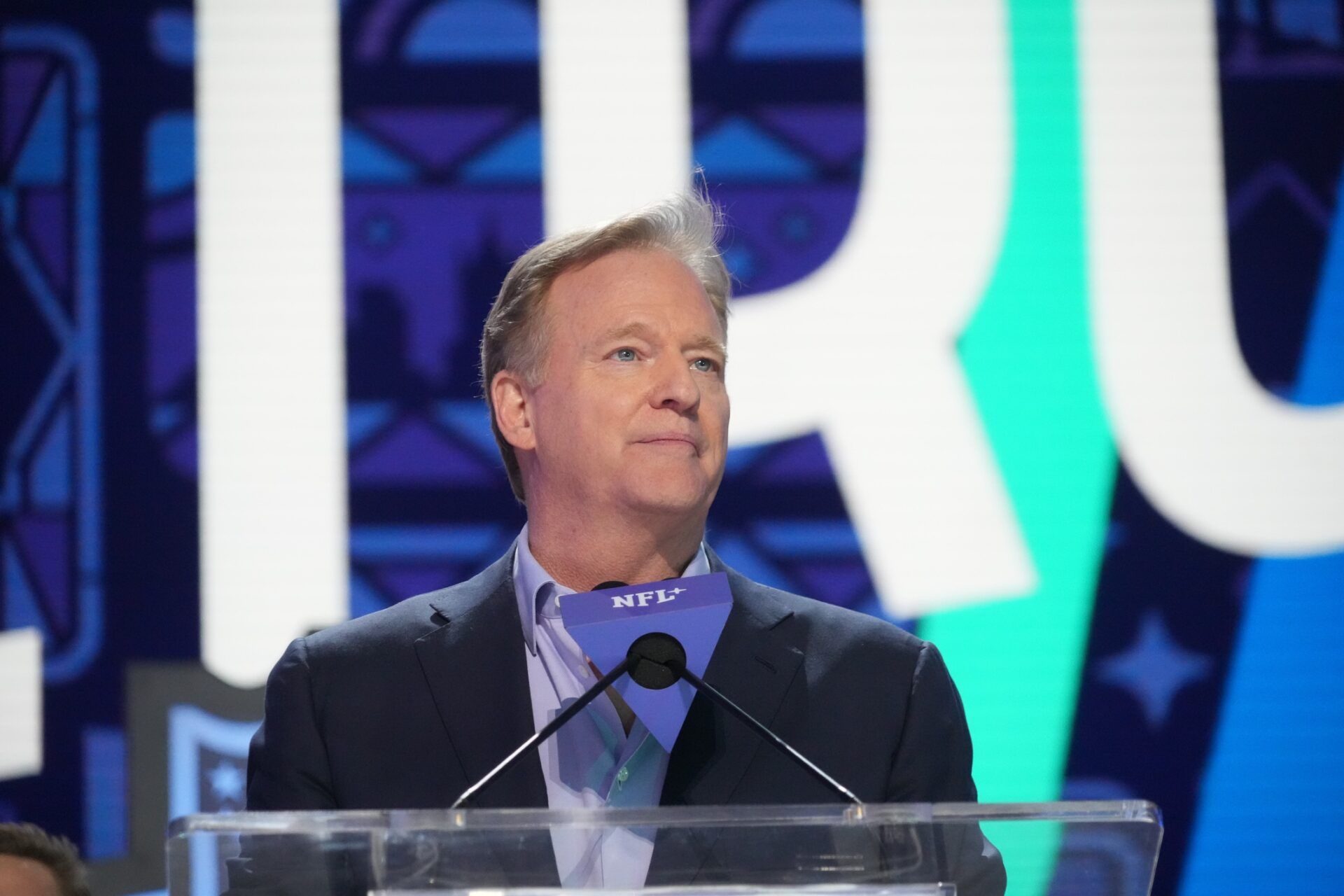The NFL took a massive financial hit Wednesday as closing arguments involving the league’s “Sunday Ticket” trial were completed.
The jury in a Los Angeles courtroom wound up siding against the league, deciding the NFL violated antitrust laws through its “Sunday Ticket” offerings.
NFL Must Pay More Than $4.7 Billion in Damages
The NFL learned its fate as the verdict was delivered in US District Court in the Central District of California.
Per Front Office Sports, the NFL must send up to $96 million to bars that carried the “Sunday Ticket” offering that were overcharged for out-of-market games aired on TV screens.
Also, via legal reporter Meghann Cuniff, the NFL owes $4.7 billion to fans who paid money to get the out-of-market package. Under federal antitrust laws, the damages are tripled, bringing the total to over $14 billion.
The lawsuit first surfaced in 2015. A San Francisco sports bar called “The Mucky Duck” claimed that the NFL unfairly bundled all of the out-of-market games. The bar stated in the suit that the NFL violated antitrust laws by bundling and made it impossible to purchase a one-team package.
The case, though, was first declined on June 30, 2017 by Judge Beverly Reid O’Connell. At the time, Judge O’Connell stated that “Sunday Ticket” did not reduce the output of NFL games. Plus, even though DirecTV might have charged inflated prices, O’Connell added that it did not “on its own, constitute harm to competition” because it had to negotiate with the NFL to carry the package.
The 9th Court Of Appeals reinstated the case two years later.
After reinstatement, the class action lawsuit saw nearly millions of bars, restaurants, and subscribers between June 2011 to February 2023 surface on the list. One of the more pivotal claims was that the NFL inflated the price of “Sunday Ticket” each year.
Michael Ginnitti, founder of Spotrac, said on X that the real winners here are the fans, as they now should be able to purchase single-team streaming packages while being alleviated of blackout restrictions.
What Does This Mean for the NFL Going Forward?
Lead attorney for the antitrust case Bill Carmody of Susman Godfrey LLP called the decision a victory for fans.
“It’s a great verdict for the consumers of America,” Carmody told reporters. He gave praise to how the jury upheld antitrust laws “despite the star power of the defendants.”
The NFL, however, appears to have a backer before it can open up and pay back the ordered billions.
US District Judge Philip Gutierrez is planning to hear post-trial motions on July 31, and the jury’s decision could be overturned if he feels the plaintiffs didn’t provide enough evidence.
“The way you have tried this case is far from simple,” Gutierrez said to the plaintiff’s attorneys earlier in the trial. “This case has turned into 25 hours of depositions and gobbledygook. This case has gone in a direction it shouldn’t have gone.”
Expect the NFL to Appeal
Meanwhile, the NFL spoke out about the court ruling in the antitrust case.
The league first expressed disappointment and the belief that the NFL offers “the most fan friendly” distribution model for fans.
“We are disappointed with the jury’s verdict today in the NFL ‘Sunday Ticket’ class action lawsuit,” the league said in a statement. “We continue to believe that our media distribution strategy, which features all NFL games broadcast on free over-the-air television in the markets of the participating teams and national distribution of our most popular games, supplemented by many additional choices including RedZone, Sunday Ticket and NFL+, is by far the most fan friendly distribution model in all of sports and entertainment.”
Finally, the league confirmed it will appeal the decision, calling it “baseless” and one “without merit.”

